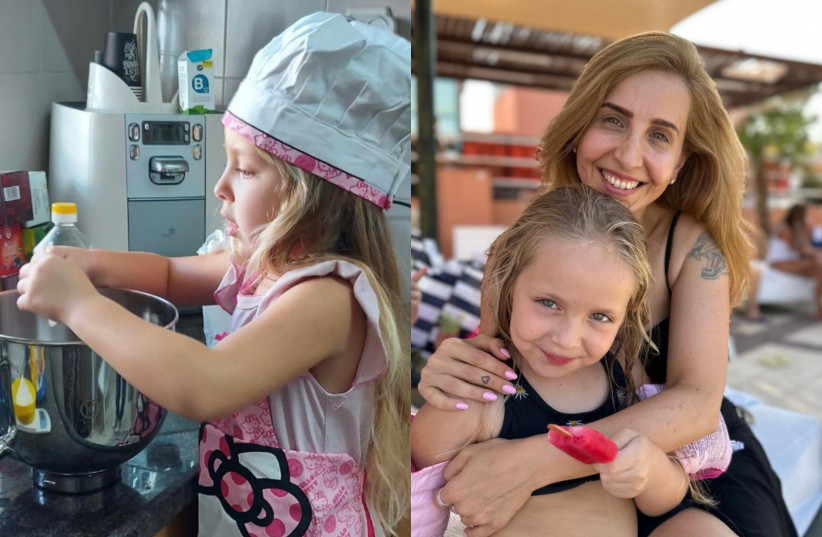When the Hamas gunmen stormed in, smashing and setting fire to the country home where Danielle Aloni was spending a holiday weekend with her daughter Emilia, she hugged the five-year-old close and said: "I'm sorry, my love. We're going to die."
But they ended up dragged into Gaza after Aloni persuaded her sister, with whom she was staying, that it was better to go out and risk being shot than to succumb to the smoke and flames.
Finding themselves among some 240 people abducted by the Palestinian terrorist group in the Oct 7 cross-border killing spree that unleashed war, the women and their three children were freed in a partial hostage release seven long weeks later.
Interviewed on Israel's Channel 13 TV, Aloni described the ordeal as a supreme test of parenting. Separated from her sister and nieces, she and Emilia were carted past jeering Palestinian mobs and into a Hamas tunnel that had iron-barred holding cells.
"My darling, do whatever they say. Stay next to me," Aloni recalled telling her dumb-struck daughter.

During three days underground with a group of hostages, Aloni says she suffered a panic attack. The other captives felt it necessary to keep Emilia from seeing this and took the girl aside. After that, Aloni decided such episodes would not recur.
"She drew all her strength from me," Aloni said. "A child mustn't get depressed. A child mustn't experience hopelessness."
She, Emilia, and a few hostages were moved between two safe houses, where they were watched by armed guards around the clock and needed permission for every function, like using the toilet.
"It was forbidden to speak - only whispers," Aloni said. "How any adult could get through that is a question in itself. But how do you pass 10 or 12 waking hours with a child? That's something entirely different."
She and Emilia fashioned tents out of their mattresses and played catch with a toy left in their room by the homeowner's children. Another woman held there retold their abduction as a folk tale, which the girl delighted in hearing again and again.
Sometimes Emilia would blame her mother for their captivity
Aloni recalled kissing the girl's hands and responding: "It's true. I'm to blame. But you'll see that every day we spend here brings us closer to leaving. For every day that you spend here, you will get to choose a present."
When her daughter noticed that she was downcast, Aloni would play this down, saying: "Mom's a bit sad. And this will pass."
It was caring for Emilia that kept Aloni going, she said. Still, the boredom and inactivity were so onerous that Aloni would encourage Emilia to sleep during the daytime hours, too.
Then, Aloni said, "I would weep. I felt like bashing my head against the wall like I wanted to take a sleeping pill and not wake. I thought we would not get out."
The sound of Israel's military assault on Gaza reached them, giving Aloni some reassurance they would be rescued eventually: "But the time - the time is something very, very significant."
Though free now, Emilia carries the mark of captivity still. Aloni said the girl cringes and covers her ears at any loud noise, plays make-believe games of "let's defend ourselves," and, when visiting any new place, asks: "Are there bad people here?"
